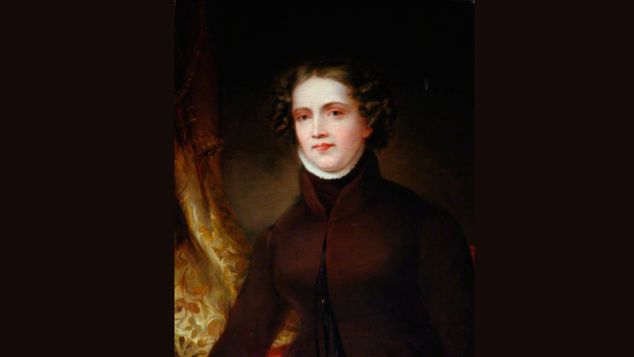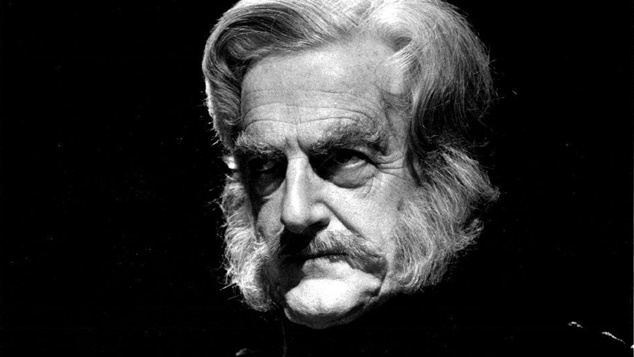Opera singer Peter Pears passed away on this day in 1986, aged 75. His career was closely linked with his partner composer Benjamin Britten, they worked together and were a couple for nearly 40 years.
The English tenor performed more than 10 different roles in operas written by Britten, and they were also highly regarded as recitalists of works by other composers, especially the lieder works of Schubert and Schumann.
Pears began performing and made his first recording in the 1930’s. He met the composer Benjamin Britten in 1936 through a mutual friend. When their friend was killed in a car crash in 1937, they volunteered to clear his cottage of possessions, and it was during this few days their friendship – which at first was platonic- was cemented.
Two years later the pair travelled to North America and it was during this time they became romantically involved. Britten began writing song cycles for Pears and they collaborated and remained a couple until their respective deaths.
In 1948 the couple created the Aldeburgh Festival, in a small seaside community in Suffolk. It still runs today and is a major cultural event in the region. Pears was awarded a CBE in 1957 and was knighted in 1978.
Britten died of congestive heart failure in 1976, aged just 63. Pears died a decade later in Aldeburgh, aged 75. He was buried next to Pears in the local church.
Take a look at this concert the pair delivered for the BBC in 1964, the recital focusses on traditional English songs.

‘Gentleman Jack’ Anne Lister was born in 1791
Anne Lister was a remarkable 19th-century English landowner, diarist, and mountaineer who defied the norms of her time.
Born in Halifax, West Yorkshire, on April 3, 1791, Lister was an accomplished scholar and linguist, fluent in several languages. Her diaries, written in a combination of English and a coded shorthand, provide a fascinating insight into her life, including her relationships with women and her quest to find a life partner.
Lister inherited her family’s estate, Shibden Hall, in 1826, and became one of the wealthiest landowners in the area. She was known for her unconventional lifestyle, dressing in masculine clothing and pursuing same-sex relationships in secret.
Lister’s relationship with her partner, Ann Walker, was a central theme in her diaries, which she kept meticulously and often in great detail. She documented everything from her financial affairs to her intimate thoughts and feelings, giving readers a vivid picture of life in 19th-century England.
Lister was also an avid traveler and mountaineer. She climbed numerous peaks throughout Europe, including Mont Blanc and the Vignemale, becoming one of the first women to do so. She kept a record of her mountaineering adventures in her diaries, providing a unique perspective on the early days of mountaineering.
Lister’s diaries were written in a code she developed herself, which she called her “crypt hand.” The code, which she used to protect her private thoughts, was not deciphered until many years after her death. Lister’s diaries are now considered a valuable historical resource, providing a glimpse into the life of a remarkable woman who defied the norms of her time.
By the time of her death there were 26 volumes of her diary, and it was many years before people were able to crack the codes she used to keep her personal life secret.
Lister died on September 22, 1840, at the age of 49, while on a trip to Georgia. She was buried in the local cemetery there, but her remains were eventually returned to Halifax and interred in the Lister family vault at Halifax Parish Church. Today, she is remembered as a pioneering feminist and LGBTIQ icon, whose life and writings continue to inspire people around the world.
The television series Gentleman Jack recounts her life with Suranne Jones playing Lister, and Sophie Rundle portraying Ann Walker.
Axel Axgil was born in 1915
Axel Axgil was a Danish LGBTIQA+ rights campaigner. Alongside his partner Eigil Axgil they were the first gay couple to enter into a registered partnership when Denmark became the first country in the world to introduce civil unions.
Born Axel Lundahl-Madsen in 1915. He changed his surname to Axgil, which was a combination of both his and his partners first names. In 1948 they formed Denmark’s first LGBTIQA+ rights organisation, originally called F-48 it later became the Danish National Association of Gays and Lesbians.
The couple also launched a queer magazine Vennen which translates as The Friend.
On 1st October 1989 Axel and Eigil made history when they became the first couple to have a registered partnership. They had been together for 40 years. In 2013 Axel Axgil was named by Equality Forum as one of the 31 icons of Gay History month, and Denmark’s annual Rainbow Awards are known as The Axgils.
Eigil Axgil passed away in 1995 and the age of 73. In 2012 a biography revealed that in 1943 he had enlisted in the Waffen-SS during the Nazi occupation of Denmark. He remained in service until the end of the war. The revelation sparked angry responses from the local LGBTIQA+ community.
Axel Axgil died in 2011 at the age of 96.

In 1895 the Oscar Wilde libel trial began
On this day in 1895 a libel trial between author Oscar Wilde and the Marquess of Queensberry began at the old Bailey in London.
On the 18th of February the Marquess of Queensberry left his calling card at Wilde’s club, the Abermarle, inscribed “For Oscar Wilde, posing somdomite”, a mis-spelling of a sodomite.
Wilde had a homosexual relationship with Lord Alfred ‘Bosie’ Douglas, the son of the Marquess. At the time such a relationship was against the law and any public suggestion that someone was gay would lead to public shaming and potential arrest.
Encouraged by Douglas, and against the advice of his friends, Wilde initiated a public prosecution of Queensberry which saw him arrested for criminal libel. If found guilty of the charge the Marquis would have faced up to two years in prison.
The case became a cause célèbre as salacious details of the author’s life were shared in court. In court The Marquis of Queensberry argued that his accusation was true, and to prove his case he hired investigators to seek out sex workers from London’s Victorian underground who had interacted with Wilde in the past.
At the trial Wilde was questioned about his association with young men from lower classes, and when the defence announced they had several witnesses wiling to testify that they had been engaged by Wilde as sex workers the author withdrew the charges. Subsequently the Marquis of Queensberry was acquitted.
After Wilde left the court a warrant was issued for his arrest on charges of sodomy and gross indecency. Wilde was arrested on 6th April, and authorities moved quickly to put him on trial. The case against Wilde opened on 26th April just weeks after he had been charged.
When the jury was unable to reach a verdict, Wilde was released from prison, but the government persisted with the charges and he returned to court the following month where a judge found him guilty of gross indecency.
In sentencing Wilde the judge, Mr Justice Willis, described the maximum sentence allowed as “totally inadequate for a case such as this”, and that the case was “the worst case I have ever tried”.
Wilde was sentence to two years hard labour, which including walking a treadmill and separating the fibres in scraps of old navy ropes. Wilde was released from prison in 1897, he immediately sailed to France never to return to the United Kingdom.
He died three years later on 30 November 1900 having contracted meningitis. He is buried in Paris.
In 1995 Wilde was remembered by the installment of a stained glass window in Poet’s Corner of Westminster Abbey. In 2017 Oscar Wilde was one of 50,000 men who was pardoned for homosexual acts with the introduction of what is informally known as Alan Turing law. Wilde’s poems, novels and plays have remained eternally popular since his death.
OIP Staff, this post was first published in 2021 and subsequently updated. AI technology was used to generate sections of this post.

Love OUTinPerth Campaign
Help support the publication of OUTinPerth by contributing to our
GoFundMe campaign.







